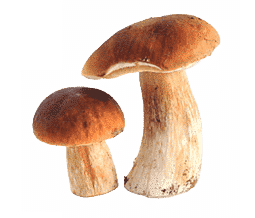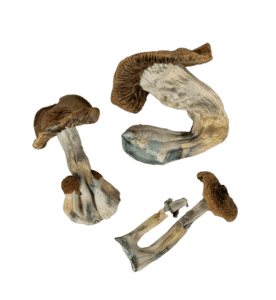- You cannot add "Shroom Mint Chocolate" to the cart because the product is out of stock.

The Effects of Mixing Alcohol and Shrooms
Alcohol and psilocybin mushrooms are distinct substances with distinct effects. Alcohol is a depressant, while psilocybin is a psychedelic compound.
Given their increasing popularity, this article aims to investigate their combined effects. By understanding their potential interactions, we can better assess the risks and benefits of concurrent use and develop informed harm-reduction strategies.
Key Takeaways
Mixing alcohol and shrooms can lead to unpredictable and potentially dangerous physical and mental health effects, including heightened anxiety, panic attacks, and impaired judgment.
Regularly combining alcohol with shrooms can cause lasting damage to both mental and physical health, such as liver damage, impaired cognitive function, and worsening of mental health conditions like depression and anxiety.
The combination of alcohol and shrooms can mask the effects of each substance, leading to increased consumption and a higher risk of developing substance use disorders, requiring professional treatment and support for recovery.
Understanding Alcohol and Shrooms
Alcohol
Alcohol is a central nervous system depressant, meaning it reduces the activity of the brain and nervous system. While the term “depressant” might make you think of sadness or depression, in this context, it refers to the substance’s ability to decrease brain function and neural activity.
Effects on the Body and Mind
Physical Effects:
Alcohol consumption can significantly impair motor skills and coordination, resulting in slower reflexes, unsteady movement, and slurred speech. Long-term, excessive drinking can cause severe damage to the liver, brain, and other vital organs.
Chronic alcohol abuse can also lead to alcohol poisoning, a potentially fatal condition that arises when the body is unable to process the amount of alcohol consumed.
Mental Effects:
Mentally, alcohol can impair judgment, reduce cognitive function, and lead to memory lapses or blackouts. In larger quantities, it can cause mood swings, aggression, and even depressive episodes.
Long-term use increases the risk of developing alcohol addiction or alcohol use disorder, a condition where the person becomes dependent on drinking alcohol to function.
Psilocybin Mushrooms
Psilocybin mushrooms, often referred to simply as “magic shrooms” are a type of psychedelic substance. Psychedelics are known for their ability to alter perception, mood, and thought processes, often leading to experiences that are described as mind-expanding or consciousness-altering.
Effects on the Body and Mind
Physical Effects:
While shrooms primarily affect the mind, they also have physical effects. Users may experience nausea, dilated pupils, and changes in body temperature.
Some people also report feeling lightheaded or experiencing muscle weakness. These physical effects are usually mild but can be more pronounced in some cases, especially if taken in large doses.
Mental Effects:
The mental effects of shrooms are where the psychedelic experience truly comes to life. Users often report vivid visual and auditory hallucinations, a distorted sense of time, and profound changes in their perception of reality.
The effects of Psilocybin can lead to deep introspection, spiritual experiences, or, in some cases, feelings of euphoria. However, shrooms can also trigger anxiety, paranoia, or panic attacks, particularly in those prone to mental health issues or when taken in an unsuitable setting.
Can You Mix Alcohol and Shroom?
Mixing alcohol and shrooms is not recommended. While some people might experiment with combining the two, the effects can be highly unpredictable and dangerous.
Alcohol is a depressant that slows down brain activity, while shrooms (psilocybin mushrooms) are psychedelics that alter perception, mood, and cognition. When taken together, these substances can amplify each other’s effects, leading to a range of adverse reactions like increased anxiety, impaired judgment, and heightened risk of a “bad trip.”
Additionally, combining alcohol with shrooms can strain both your mental and physical health, potentially causing long-term damage, including addiction and cognitive impairment. The risk far outweighs any potential short-term experience, making it a dangerous and ill-advised combination.
The Effects of Mixing Shrooms and Alcohol
The combination of alcohol and psilocybin mushrooms can produce a complex and unpredictable range of effects.
Short-term Effects
Altered sensory and perceptual experiences
Users often report intensified visual, auditory, and tactile experiences. However, the combination can also lead to distorted or confusing sensory input.
Potential enhancement or reduction of psychedelic effects
Alcohol may amplify or diminish the psychedelic effects of psilocybin, depending on factors such as dosage and individual sensitivity.
Increased risk of adverse psychological reactions (e.g., anxiety, paranoia)
The combination can exacerbate anxiety, paranoia, and other negative psychological reactions, increasing the likelihood of a “bad trip.”
Long-term Effects
While research on the long-term effects of combining alcohol and psilocybin is limited, potential risks include:
Potential cumulative effects on mental health
Repeated combined use could potentially impact mental health, although the exact nature of these effects is unclear.
Risk of impaired cognitive and emotional functioning
Long-term alcohol abuse is known to impair cognitive function, and the combination with psilocybin could potentially exacerbate these issues.
Subjective Reports
User experiences and anecdotal evidence
Many individuals have shared their experiences of combining alcohol and psilocybin. However, these accounts are highly subjective and may not represent the full potential outcomes.
Variations based on dosage and individual differences
The impact of mixing alcohol and psilocybin mushrooms can vary significantly based on factors like the dosage of each substance, individual bodily responses, and the environment and mindset of the person.
Safety Considerations Before Mixing Alcohol and Shrooms
Mixing alcohol and shrooms can be a risky endeavor, and it’s essential to understand the safety considerations before deciding to combine these substances. While some might be tempted to enhance their experience by mixing these two, the potential dangers often outweigh any perceived benefits.
Unpredictable Reactions
Alcohol and shrooms can interact unpredictably, leading to a wide range of reactions. The unpredictable nature of their combination increases the risk of a negative experience.
Increased Risk of a Bad Trip
Shrooms and alcohol can intensify hallucinations and lead to a bad trip. When you drink alcohol, it impairs judgment, making it harder to manage shrooms’ psychological effects.
This combination can increase anxiety, paranoia, and panic attacks, posing a risk to mental and physical health.
Physical Health Risks
Combining alcohol and shrooms can significantly increase physical health risks. Both substances can cause dehydration, rapid heart rate, and high blood pressure.
These effects can worsen when combined, leading to a more significant strain on the body. Additionally, the risk of alcohol poisoning is heightened due to the disorienting effects of shrooms.
Impaired Judgment and Coordination
Consuming alcohol and magic mushrooms together can significantly amplify their effects, leading to severe impairments in judgment and coordination. This heightened risk can result in dangerous behaviors like driving while intoxicated, overconsumption of substances, or involvement in hazardous situations.
Additionally, reduced coordination can increase the likelihood of accidents or injuries, particularly in unfamiliar or unpredictable settings.
Mental Health Considerations
For individuals with pre-existing mental health conditions, mixing alcohol and shrooms can be particularly dangerous. Both substances can exacerbate symptoms of depression, anxiety, and other mental health issues.
The altered state induced by shrooms, combined with alcohol’s depressive effects, can trigger or worsen mental health crises, making it essential to approach this combination with extreme caution.
Long-Term Effects and Addiction Potential
Frequently mixing alcohol and shrooms can result in serious long-term health issues, including a higher likelihood of developing substance use disorders. The combination can establish a cycle of abuse, where the urge to repeat the experience drives increased consumption.
It can lead to dependence on one or both substances, often necessitating professional help for addiction in alcohol treatment options.
The Importance of a Safe Environment
If you decide to mix alcohol and shrooms, it’s crucial to ensure that you are in a safe, controlled environment. Being around trusted individuals who can offer support and help if things go wrong is essential.
Avoid situations where you could be exposed to additional risks, such as unfamiliar settings or large crowds, which can exacerbate the effects of both substances.
Finally
Mixing shrooms with alcohol is not a game—it’s a gamble with your health. The potential drug abuse for both substance have adverse reactions is high, and the risks far outweigh any perceived benefits.
Before you consider mixing these two substances, remember the impact on your brain, body, and life. Take control of your choices, and if you’re struggling, reach out for professional help. Your health is worth more than any high.





